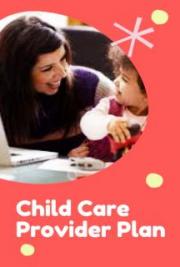Top 5 Fertility Secrets Revealed
by Melinda Stevens

Brought to you by
http://www.pregnancy-online.info
All rights reserved, 2007. Copyright 2007, Pregnancy-Online.info
Hi,
thanks for downloading my free report. Let me introduce myself first:
My name is Melinda Stevens and I'm a happy mother of a 2-year-old boy. I always thought I might be infertile, until I discovered an E-Book called “Fertility Secrets Handbook”, written by a Swedish woman called Helene Kvist, who first became pregnant at the age of 41 and now has 3 children. Her book is all about secrets to increase a woman's fertility.
Only 4 months after I started using the methods described in Helene's book, I got pregnant at an age of 37. This book really changed my life, and therefore I decided to share some of the secrets with fellow women who are trying to get pregnant.
Before coming to the actual tips, I would like to explain what happens during a
menstrual cycle and how it affects your chances to get pregnant.
A Menstrual Cycle
With every menstrual cycle, your body prepares for a pregnancy. An average cycle takes 28 days to complete, and can be divided into three phases: the follicular phase, the ovulatory phase (ovulation), and the luteal phase.
The
follicular phase is the first phase of your period. It starts on the first day of your monthly cycle:
Ï Your brain releases the hormones FSH (follicle stimulating hormone) and LH (luteinizing hormone). They travel through your blood to the ovaries.
Ï The ovaries contain follicles that house
immature eggs. The hormones FSH and LH then stimulate the growth of these eggs.
Ï Usually, only one of these eggs will mature. The dominant follicle suppresses all other follicles. These other follicles will stop growing and die.
About 14 days before your next menstruation starts, the
ovulatory phase (ovulation) begins:
Ï The mature egg breaks out of its follicle. The ovary then releases this egg. This process is called
ovulation.
Ï Your
fallopian tubes grab hold of the egg, using finger-like projections.
Ï During this ovulatory phase, your cervical mucus increases in volume and changes its texture. (The cervical mucus is necessary for conception. It helps keeping the sperm alive while the sperm travels to your egg.)
Right after ovulation, the
luteal phase begins:
Ï If sperm reaches the egg and fertilizes it, the fertilized egg will travel through your fallopian tube into your uterus. It will implant itself into your uterus. You are pregnant.
Ï If not fertilized, the egg dries up and leaves your body about 2 weeks later through the uterus. The lining of your uterus breaks down and sheds. Your next menstrual period begins.
The Top 5 Fertility Secrets
1.
Finding your most fertile days
Your highest chance to get pregnant is around your ovulation. Your most fertile period starts about 4 days before ovulation, and ends about 24-48 hours after your ovulation.
You have several
options to find out your personal ovulation date:
1. The
basal body temperature method:
During the first half of your monthly cycle (the follicular phase), the hormone Estrogen helps your ovaries to produce the egg. After your ovulation, the hormone Progesterone dominates.
The higher levels of Progesterone after ovulation increase your basal body temperature. Given this fact, an increase in body temperature indicates that your ovulation has started.
For this method to work, you need to take your body temperature every day and chart the patterns of the temperature change.
After ovulation, you should notice a rise in your body temperature (normally about 0.4 to 1.5 degrees). When charting your temperature over some months, you should start seeing a pattern. You can then estimate the date your ovulation starts.
2.
Counting the days:
Counting the days is an easy, but
less secure, method.
Ovulation starts approximately 14 days before your next period begins. To find out when your ovulation starts, you just have to count the days backwards. E.g. if you are on a 28-day monthly cycle, your ovulation should start on the 14th day of your period. If you are on a 30-day cycle, your ovulation should start on the 16thday.
3. Checking your cervical mucus:
During ovulation, your cervical mucus increases in volume and changes its texture. The mucus becomes slippery and clear, a little bit like raw egg white.
To check your mucus, insert a finger in your vagina and collect some mucus. Remember to wash your hands before inserting a finger to avoid transmitting bacteria.
2.
Body weight
I'm sure you have heard of the overall
negative effects of being overweight. This is also true when it comes to women's fertility.
An index called the
Body Mass Index (BMI) is used to categorize the overweight a person has.
You can calculate your BMI by using this formula:

A BMI of 19-25 is considered normal and healthy, while a BMI of 26-29 indicates overweight. Women with a BMI over 30 are called obese. A BMI of 40+ indicates extreme obese.
Studies have shown that women with a BMI higher than 32 have
lower conception rates.
Fertility doctors often
advise women who are obese, to consider losing some weight before undergoing fertility treatments.
Underweight, on the other side, can cause infertility, too. A healthy return to normal weight will often
restore fertility.
3.
Smoking
A study by the British Medical Association found out that smoking causes
impotence in 120,000 men aged 30-50.
You should be aware of the fact, that smoking
reduces the chance to conceive by up to 40% per cycle.
Another study looked at success rates from 569 women aged around 29 who were trying to conceive. This study included smokers, exsmokers and non-smokers. The results showed that women who continued to smoke, waited almost two months longer to successfully conceive than women who stopped smoking.
If you are seriously trying for a baby, you should definitely consider
quitting smoking.
If you try to conceive, you should also bear in mind the
harmful effects smoking has to your baby when you get pregnant.
A baby in your belly gets everything from you. The fetus will not only get exposed to the toxins in tobacco smoke, the toxins will also damage your placental functions.
Babies who get
exposed to toxins in your belly...
Ï have a birth-weight of approximately 7oz less than other babies. Ï have organs that are smaller than usual.
Ï twice as likely die from cot death.
Ï have a poorer lung function.
Ï have an increased risk to become smokers themselves. If you want to stop smoking, check out these courses:
Quit Smoking Today
EasyQuitSystem
QuitSmokingRightNow
All of them offer a 60-day money-back guarantee. Try them, and if they don't work, just return them, and get your money back. It's absolutely free of risk.
4.
Alcohol
The negative effects of chronic alcoholism on the reproductive system are well known, but recent studies have shown that even moderate alcohol use has adverse effects on fertility.
If you are trying to get pregnant, you should learn the
range of adverse effects alcohol use can have:
Ï Infertility
Ï Impaired fetal growth and development
Ï Increased risk for spontaneous abortion
Alcoholism or alcohol abuse can also be
associated with:
Ï anovulation (the absence of ovulation)
Ï hypothalmic-pituitary-ovarian dysfunction resulting in amenorrhea (absence of menses)
Ï luteal phase dysfunction (abnormal development of the endometrial lining)
Ï hyperprolactinemia (presence of abnormally high levels of prolactin in the blood)
You should note that one beer, a glass of wine, or a mixed drink contains about one half ounce (15g) of
alcohol.
We are talking about alcohol
abuse if the daily consumption reaches four to six drinks or two or three ounces of alcohol (60 to 90g).
When trying to get pregnant, you should consider
not drinking alcohol at all.
5.
Vitamins
Studies have shown that vitamins can have a
beneficial effect on both male and female fertility.
Some
beneficial vitamins are:
Ï Vitamin A: You should be careful about taking Vitamin A before or during pregnancy. Many doctors advise against taking Vitamin A during pregnancy. Be sure to speak to your doctor as no general advice can be given.
Ï Vitamin C: Studies have shown that Vitamin C can protect the sperm and its DNA from damage. Vitamin C is also able to enhance the sperm quality.
Ï Vitamin E is required for a balanced hormone production. It is also a powerful antioxidant, that increases both male and female fertility. Fertilization rates of men who got Vitamin E, have increased from 19 to 29 percent.
Ï Folic Acid: Women who take folic acid supplements every day have a better chance of getting pregnant.
A study involving more than 18,000 women showed that women who took folic acid supplements regularly had a 40% lower risk of suffering problems producing eggs.
Thanks for taking the time to read through all of this.
I am aware of the fact that this report only scratched the surface, but please note that I can only offer this very small amount of tips as Helen wouldn't be too happy if I would give away all of her great tips for free.
If you are interested in a large amount of tips on increasing your fertility, be sure to check out Helen's book “Fertility Secrets Handbook”. It's a great resource on everything fertility related :-)
No B.S.: I wouldn't recommend it if I didn't absolutely love it. Helen's book has really changed my life.
Have a great day.
Melinda Stevens
Disclaimer: The information in this report should only be used for informational purposes. The information provided should not be used during any medical emergency or for the diagnosis or treatment of any medical condition. A licensed physician should be consulted for diagnosis and treatment of any and all medical conditions. The information in this report is not exhaustive nor
does it claim to be medically correct in all cases. If you find something medically incorrect, please give notice. Call 911 for all medical emergency situations.




 Brought to you by
Brought to you by



